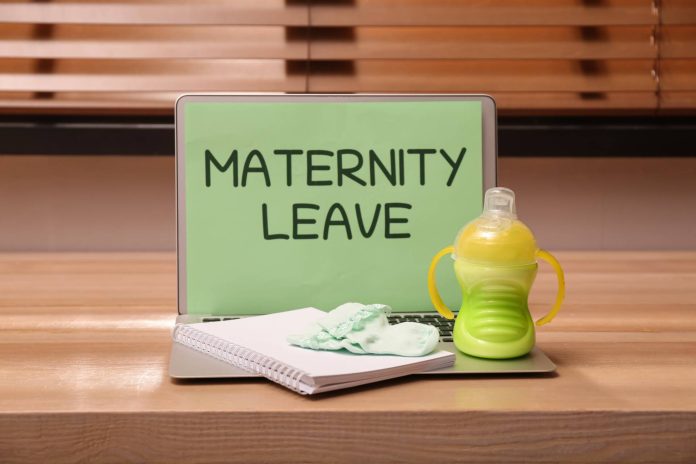By Dawood Auleear
The one-year maternity leave proposed as part of the opposition electoral program has caused an avalanche of debates, mostly, if not totally, on its sustainability from an economic point of view. Radio shows too have been part of the debate. Mauritius has long ago joined the list of ‘nanny states’, some would say. But I don’t recall similar outcry when billions were doled out in the past in loans without collaterals! We don’t have to take the critics to task for voicing their concerns now, as there is no such thing as a free meal – it has to be paid for by taxpayers. The central point of focus, however, should be the need or not of a leave to allow mothers to spend time with their babies during the early formative days and what can or would be the consequences if we deprive them of this “favour”.
Mother, you had me, but I never had you / I wanted you, but you didn’t want me/ so I just got to tell you/ Goodbye —from a song by John Lennon of The Beatles – is a precise description of a phenomenon known as Maternal Deprivation. According to this notion, infants, human or animal, need to be emotionally attached to a mother or a mother figure, in early childhood, in order to have a normal development. Le Week-End edition of 22 May 2024 published the findings from a scientific research that conclude that “Même les cachalots ont besoin de baby sitters”.
On the other hand, a research paper published some time ago in The Scientific American talks of the lives of two twins, one of whom developed a problem in his esophagus and had consequently to be tube-fed. The mother was so “careful” as not to hurt her child that she did not hold him to feed him. The son felt neglected and rejected as a result of which he developed all kinds of symptoms – his sleep patterns were irregular; he would wet his pants and he lost weight and his growth was affected.
The young boy was taken into hospital and the professional carers held him, bathed him, changed him and comforted him. In other words, he was treated as a normal growing child should be. Within a week or two, the negative symptoms were gone, he gained weight and came to look like his twin brother physically. Scientists hold that maternal care which involves talking, holding, kissing, hugging, laughing, tossing the child up in the air, bathing and even shouting, plays an important part in a child’s development. The absence of such care is maternal deprivation. Maternal care should be a continuous, warm and intimate relationship and is central to the mental and the social health of a child as well as to society. They even go so far as to state that “children thrive better in bad homes than in good institutions” and that “if you love your future generation, you need to value their parents”.
Some express the views [debatable] that the ills of society today divorce, promiscuity, battered children and wives, alcoholism, drug addiction, robbery, in a word, all forms of delinquency have roots in maternal deprivation. What do we have to lose if we were to pay attention to this phenomenon? I believe it should be the start. If we are convinced that our society can be better off in the absence of the scourge of delinquency, let us then think of the price we have to pay. Individually, we are already doing it think of the large sums that families are spending to treat a number of diseases pronounced incurable by doctors.
We are retiring employees at 65 who then choose to spend 10 more years actively working in other jobs, we are doling out indiscriminately Rs 15,000 monthly to everyone over 60, including those who are enjoying workplace pensions too, and even to millionaires without forgetting that they also enjoy free health care, free transport and free education for their children – we do not have means tests in Mauritius. We are an ageing population and the number of young couples is getting smaller with an overwhelming majority of them preferring to have a single child thereby reducing the size of the future working population. The Opposition pundits must have worked out their figures and must have sought advice from professionals in the field of child care.
As for me, I am tired of coming across youths begging to get high on drugs. If the worst comes to the worst, we’ll have what Henry Kissinger said when trying to resolve a complex social problem – not absolute satisfaction but balanced dissatisfaction.





![[Poetry corner] Mystical poem: The greatness of Allah](https://sundaytimesmauritius.com/wp-content/uploads/2024/06/Cassam-Tupsy2-218x150.jpg)



![[URGENT] Le PMSD convoque son comité exécutif cet après-midi](https://sundaytimesmauritius.com/wp-content/uploads/2024/07/x-150x150.png)

![[Super League 2024] L’équipe Plaine Magnien Star Club remporte la régionale de Grand Port](https://sundaytimesmauritius.com/wp-content/uploads/2024/07/449598069_841745630808469_1098766535885890331_n-150x150.jpg)

![[URGENT] Le PMSD convoque son comité exécutif cet après-midi](https://sundaytimesmauritius.com/wp-content/uploads/2024/07/x-100x70.png)

![[Super League 2024] L’équipe Plaine Magnien Star Club remporte la régionale de Grand Port](https://sundaytimesmauritius.com/wp-content/uploads/2024/07/449598069_841745630808469_1098766535885890331_n-100x70.jpg)